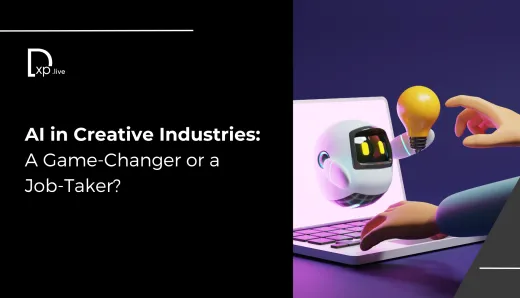How Human-Centric AI Boosts Customer Loyalty

Artificial Intelligence (AI) has become an integral part of modern customer service. But as automation and efficiency take center stage, a new frontier is emerging: human-centric AI. Far from being just another tool for operational improvement, human-like AI is proving to be a transformative force for customer loyalty.
This evolution, highlighted in Zendesk’s 2025 Customer Experience (CX) Trends Report, reveals a deep shift in how businesses approach AI and its role in building trust, empathy, and meaningful connections with their customers.
The AI-CX Revolution
The report draws insights from a vast survey of 5,100 consumers and 5,400 customer service professionals across 22 countries, capturing the pulse of an industry undergoing radical change. The findings highlight five critical trends shaping the future of customer service:
- AI copilots are driving autonomous service by managing routine tasks and freeing agents to handle complex issues.
- Consumers are demanding AI interactions that feel more human and empathetic.
- Personal AI assistants are poised to redefine how customers interact with businesses.
- Voice AI is becoming the preferred channel for resolving complex problems.
- Personalization is taking center stage in defining customer loyalty.
Globally, businesses that embrace AI thoughtfully—referred to as "CX Trendsetters"—are reaping substantial benefits, including higher customer acquisition, retention, and cross-sell revenue. The message is clear: integrating AI with a human-centric approach is no longer optional. It’s the key to surviving and thriving in the fiercely competitive CX landscape.
From Automation to Authenticity
For decades, AI has been about efficiency—solving problems quickly, reducing costs, and scaling operations. But customers now expect more than just faster service. They want interactions that feel personal, authentic, and even empathetic. According to the Zendesk report, 64% of consumers say they trust AI agents more when they exhibit traits like friendliness and understanding.
Human-centric AI is addressing this demand by evolving from a tool for efficiency to a medium for connection. AI agents, particularly those powered by voice and natural language processing, are enabling conversational, relatable interactions that go beyond traditional transactional exchanges.
This shift is especially pronounced in markets like the UK, where 88% of CX leaders agree that Voice AI is gaining traction. The ability to replicate natural human conversations is not only enhancing customer satisfaction but also driving trust and loyalty.
Empathy in Automation: Why It Matters
The focus on human-like AI stems from a deep understanding of what drives customer loyalty. It’s not just about resolving issues—it’s about how those issues are resolved. When AI agents can communicate with warmth and empathy, they create a positive emotional experience that leaves a lasting impression.
For example, when customers interact with AI copilots, they appreciate the seamlessness and speed, but they also value feeling understood. Whether it's a friendly greeting, a conversational tone, or a proactive suggestion, these small touches can make a big difference.
CX leaders who have invested in human-centric AI report significant improvements in customer satisfaction and retention. Globally, CX Trendsetters are seeing 33% higher customer acquisition rates, 22% higher retention rates, and 49% higher cross-sell revenue—proof that empathy-driven AI is not just good for customers, but also for business.
Despite its promise, human-centric AI is not without challenges. The Zendesk report highlights a 250% year-on-year increase in the use of “shadow AI” tools—unapproved technologies that agents adopt to fill gaps in official systems. While these tools may improve short-term efficiency, they pose risks to customer privacy, security, and service quality.
Moreover, as companies move toward autonomous service models, they must ensure their AI systems prioritize data security and reliability. With 75% of CX leaders expecting 80% of customer interactions to be resolved without human intervention shortly, the stakes are higher than ever.
A Future Built on Trust and Personalization
As the Zendesk report emphasizes, personalization is the cornerstone of customer loyalty in the AI era. Consumers no longer settle for generic interactions; they want experiences tailored to their preferences, behaviors, and needs.
AI excels in this area by analyzing vast amounts of customer data to deliver personalized recommendations, proactive solutions, and bespoke interactions. When done right, personalization not only enhances the customer experience but also strengthens the emotional connection between brands and their customers.
For businesses, the path forward is clear: invest in AI that understands, engages, and connects on a human level. This means designing systems that are not just functional but also emotionally intelligent—able to recognize the nuances of human behavior and respond in ways that feel authentic and meaningful.
How Human-Centric AI Drives Loyalty
Human-centric AI is redefining loyalty by transforming every aspect of the customer journey:
- Building Trust: Customers are more likely to trust brands that use AI responsibly and empathetically.
- Enhancing Satisfaction: Human-like interactions leave a positive impression, increasing the likelihood of repeat business.
- Encouraging Advocacy: Happy customers become brand advocates, spreading the word about their exceptional experiences.
- Delivering Proactive Support: Human-centric AI can predict customer needs based on past behavior and preferences, offering solutions before problems arise. For example, an AI system might suggest product maintenance tips or notify customers of potential delays in service, demonstrating care and attentiveness.
Zendesk’s findings demonstrate that CX Trendsetters are leading the way, with 90% reporting positive returns on their AI investments. By prioritizing empathy and personalization, these companies are not only meeting customer expectations but also setting new standards for the industry.
Final Thoughts
As AI continues to evolve, its role in customer experience will only grow more significant. The shift from automation to authenticity represents a profound change in how businesses interact with their customers. Human-centric AI is not just about improving efficiency—it’s about building connections, fostering loyalty, and creating experiences that resonate on a deeply personal level.
In the rapidly changing world of CX, one thing is certain: the future belongs to companies that put people at the heart of their AI strategies. By embracing human-centric AI, businesses can unlock new opportunities, redefine customer relationships, and secure their place in the competitive landscape of tomorrow.
Stay updated on the latest trends in customer experience and AI innovation! Explore our related blog Why You Should Improve Customer Experience. Dive in today!
FAQs
1. What is human-centric AI in customer service?
Human-centric AI focuses on creating interactions that feel personal, authentic, and empathetic. It evolves AI from being purely operational to a tool for building trust, connections, and customer loyalty.
2. How does AI contribute to customer loyalty?
AI enhances customer loyalty by offering personalized, empathetic, and efficient interactions. Features like AI copilots, voice AI, and personalized recommendations help build trust and satisfaction, encouraging repeat business and advocacy.
3. What are the challenges of adopting human-centric AI?
Challenges include managing "shadow AI" tools that can compromise security and quality, ensuring data privacy, and maintaining reliability in autonomous service models.
4. How does personalization improve customer experiences?
Personalization enhances the customer experience by tailoring interactions to individual preferences and needs. It fosters emotional connections, leading to higher satisfaction, loyalty, and revenue growth.




